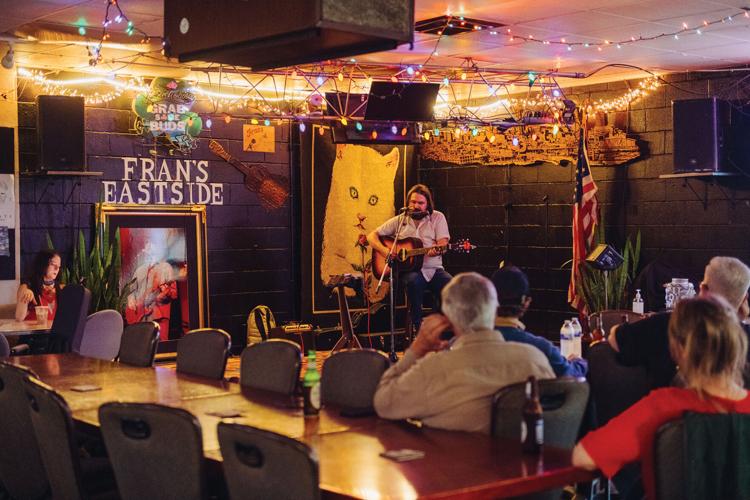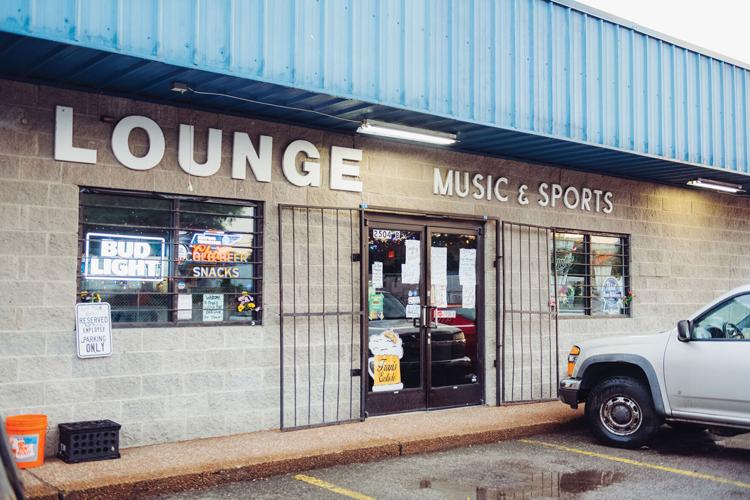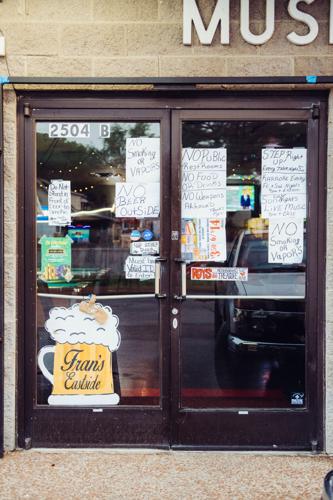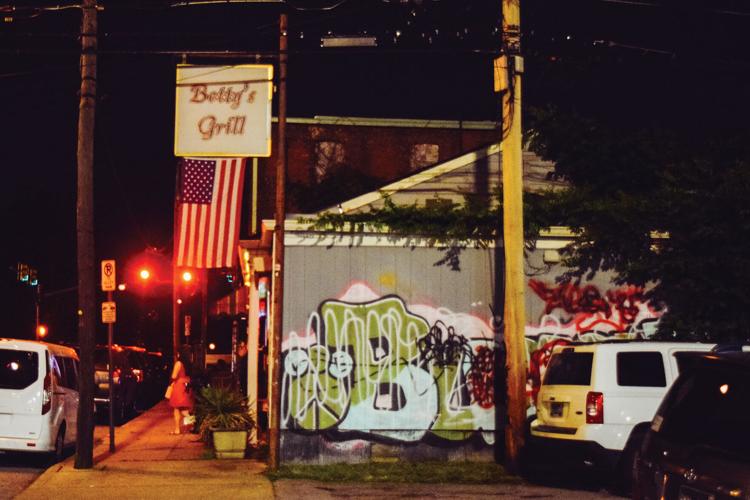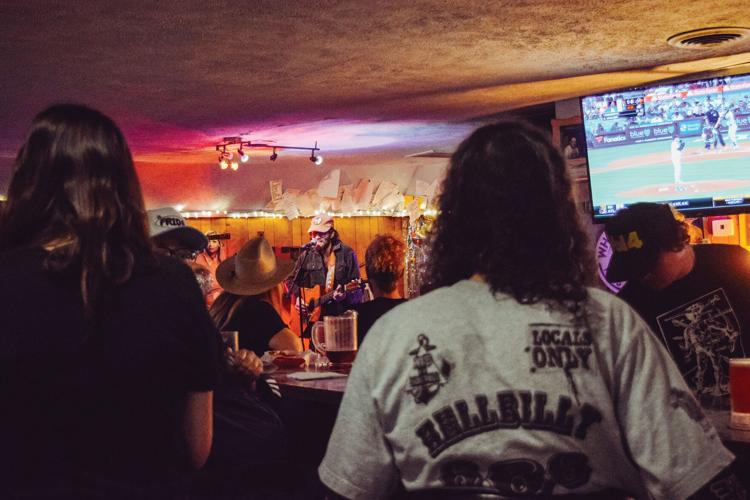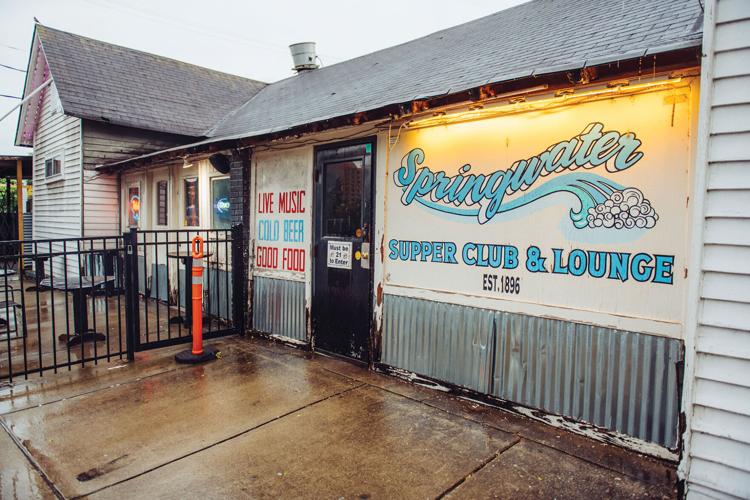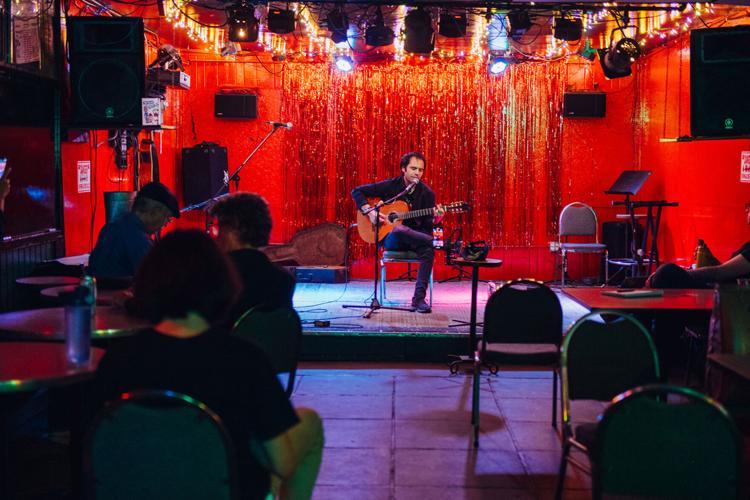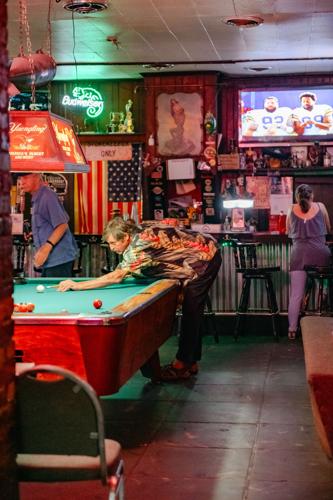Frances Elizabeth Adams says it takes just one thing to run a successful bar: respect.
“A real bar is making your customers feel welcome, like they have a place at your bar,” Adams tells the Scene. “You have to gain respect from customers, let them know you’re not gonna have any problems, and they will keep coming back.”
We talk off Dickerson Pike outside Fran’s — the signage reads “Fran’s Dive Bar,” though it used to be (and sometimes still is) known as Fran’s Eastside. It used to be on Greenwood Avenue near Porter Road, and before that it was on Gallatin Avenue (in the same spot that currently houses The Cobra). Adams, who turns 81 this fall, traces her lineage all the way back to Lower Broadway, where she broke into the industry with a rougher but busier bar called Kitty Cat’s in 1968. She sold stew and beans from a crockpot for 50 cents per bowl and beer by the pitcher for a couple dollars.
Every few sentences, Adams hits on another story from her decades as a bartender and bar owner — peep shows, a bank robber named Two-Dollar Joe, a quiet regular she passed off as Johnny Cash’s brother, organized crime she refers to only as “the syndicate” — reciting current and former Metro Beer Permit Board regulations from memory. Slowly, Adams reveals the hard-earned combination of street sense and business acumen necessary to make it not just as a bar but as a dive bar.

Fran’s
“A dive bar is history, and it’s a country bar — crap on the walls, things there is only one of in the world,“ she says, gesturing at the bar’s locally famous cat tapestry, which hangs behind the karaoke stage. “Cold beer that’s cheap. I’ve never had liquor. It’s trouble, and you can’t control your sales.”
Basic beers cost $2.50, wine coolers go at $3, and premium beers run $3.50 each. Bartenders track beers and wine coolers by the drink and save premium bottles, per Fran’s policy, so she can count them the next morning. She grimaces at the thought of a quarter-dollar increase. It’s been a decade since she last raised prices, and she knows the time is coming.
Fran’s daughter Katrina closes four nights a week. She packs the bar calendar with events and will book nearly any band “as long as there’s a following,” which helps get people paying covers and buying drinks. There’s poetry night on Monday, live music on Wednesday, open mic on Thursday, monthly burlesque shows, and Fran’s lauded karaoke Friday and Saturday till 2:45 a.m.
Fran’s longtime regulars followed the bar from Greenwood, where rent doubled in July 2022. Then, after more than a decade, her landlord (whom Adams describes with an expletive) ultimately refused to renew the lease. She specifically wants to thank the 308 people who donated more than $15,000 to help the move to her current spot — a small plaza just past Trinity Lane, which she fixed up with help from Katrina and her husband Ron. It’s affordable but lacks the East Nashville foot traffic. Adams plans to be in business for as long as she can. The “millenniums,” as she calls them, keep coming in.
While Ron insists that Fran’s has no peers across the city, a few bars command comparable atmosphere and history. A few more, like Ethel’s Tabernacle across the street, desperately try to capture the essence that makes an older dive both unique and familiar.

Betty’s Grill
“A dive is just a little beer joint,” says Scott, a regular at Betty’s Grill off Charlotte Avenue. He’s been drinking here a few times a week for 40 years. “It’s not as busy as it used to be. It’s not as redneck as it used to be. But I think if we go to some of these other bars, we might freak them out. Or, I don’t know, fit right in.”
Like Fran’s, Betty’s does not serve liquor. Beer comes in a bottle or frozen mug, a refreshing touch the bar shares with West Side neighbor Brown’s Diner, which recently expanded its hours and menu to include breakfast. (More on that in this week’s cover story.)
Both Betty’s and Brown’s sit at the end of retired Nashville trolley lines. They owe their narrow doorways, small windows and low ceilings to the railcar bones that initially housed each bar. Formerly called “The Trolley,” or just “Trolley’s,” Betty’s sits on top of an original trolley car chassis, says Scott — a trivia fact proudly confirmed by two other regulars. Local cult favorites Styrofoam Winos recently played a whole night of ’90s covers at Betty’s, part of the offbeat live programming that brings new patrons through the doors. Branding includes an active Facebook page and a painted “Betty’s” sign down 49th Avenue hoping to draw traffic from Charlotte.

Springwater
These drinking institutions share deep roots in the neighborhood, a dedicated regular crowd and a willingness to try out creative entertainment to get people in the door. Cold beer for a few dollars, sometimes in a frosty mug, often comes with pool, darts and a dedicated smoking area (now that it’s illegal by Metro Council ordinance to light up indoors). These establishments often come with their own rulebooks pieced together from handwritten notices posted on the door or behind the bar. While there might have been more a few decades ago, Nashville still nurtures too many old dives to list — Santa’s Pub, Bobby’s Idle Hour, The Villager Tavern and Springwater have survived in particularly aggressive real estate markets — and a few juvenile spots celebrating second or third decades, like Rosie’s Twin Kegs and Mickey’s (too young and bare to be a proper dive, according to Fran Adams). For an hour each Friday, Schulman’s — recently opened at the same intersection where Fran’s used to live — flirts with dive-level volume when it sells frosty 40-ounce Miller Lites for $4.
“As the day progresses, the clientele gets younger and more rowdy,” says Don McGreevy, a Mickey’s bartender. “Some Saturdays I’ll have regulars two or three deep at the bar, plus people coming in who have never been here before. I’ll see IDs from dozens of different states.”

